How poor state of Abuja-Kaduna Road aids accidents, kidnapping
Potholes and lane diversions are responsible for increased accidents as bandits take advantage of the slow pace of construction work on the Abuja-Kaduna highway to attack commuters, Daily Trust reports.
Passengers and drivers who spoke to our correspondents lamented that most of the kidnapping incidents recorded along the road could not be amplified by the media because they affect ordinary persons as prominent personalities no longer patronise the road since they now use the train to travel between Abuja and Kaduna.
The 375-kilometre Abuja-Kaduna-Kano Expressway is one of the busiest roads in the country linking many towns and villages.
The terrible state of the road was dualised in the 1980s by the IBB administration but the activities of criminals had forced those that have the means to boycott the road while it continued to claim many lives, especially of the poor in recent years.
Commuters plying the route found succour following the commencement of daily train services between the two cities in 2018 after President Muhammadu Buhari officially inaugurated the Abuja-Kaduna train in 2016.
Before then, a contract for the rehabilitation of the road was awarded to Julius Berger Nigeria Plc. on December 20, 2017, with a completion period of 36 months. It meant that work should have been completed in the first half of 2021.
But when it became obvious that it was impossible to meet up with the timeframe, the federal government extended its completion deadline to 2023, after reviewing the contract sum from N155 billion to N797.236 billion.
The variation of the contract drew the ire of many, with some describing it as probably the costliest road project in recent times.
However, despite increasing the contract value, construction work on the Abuja-Kaduna corridor remained problematic.
How rail track bombing reverses attention
The bombing of the Abuja-Kaduna rail track on Wednesday, October 20 and Thursday, October 21, by terrorists, brought back attention to the dilapidating condition of the road.
There was increased traffic flow on the corridor soon after the breach on the rail track up till Saturday, October 22, when it was repaired and services resumed. But some commuters are yet to get back to the trains despite safety assurances, living them with hard choices between the two.
Motorists plying the road narrated how the poor state of the highway, characterised by potholes, diversions and driving against traffic has contributed to the successful operation of bandits who kill and abduct travellers for ransom.
Alhaji Idris Altine, a commuter, said the terrible state of the road was responsible for numerous tyre bursts, which cause vehicles to lose control and veer off the road.
According to Altine, bandits take advantage of the road from Maraban Isa to Jere, Katari, Gadan Malam Mamman down to Rijana and Olam Farm to launch attacks on motorists who were forced to slow down.
Daily Trust reports that it was around Dutse village between Olam and Sabon Gaya that the Emir of Bungudu, Zamfara State, Alhaji Hassan Atto and others were abducted in September.
The Federal Road Safety Commission (FRSC) also told Daily Trust that there are two known deadly points along the 165.5km highway where accidents frequently occur.
Kaduna State Sector Commander of the FRSC, Hafiz Mohammed, told Daily Trust that the portions from Olam to Rijana and from Doka to Katari were tagged “the most dangerous spots” where accidents easily occur.
Mohammed also said bridges along the Katari to Doka part of the road such as the Azara Bridge, have equally claimed lives due to its lack of protective barriers until recently when the Federal Ministry of Works intervened.
Daily Trust reports that in August, 12 people lost their lives in a ghastly motor accident in Nasarawa Doka along the highway due to brake failure following a tyre burst.
Before then, 19 people perished when a commercial DAF trailer carrying 53 people lost control and veered off into the bush after its tyre burst.
Snail speed construction
While the construction between Kaduna and Zaria and between Zaria and Kano has witnessed appreciable progress, that of Abuja to Kaduna is stagnated, an investigation by Daily Trust revealed.
One of our reporters, who drove to Kaduna from Abuja recently, observed that from the Zuba flyover bridge down to Kaduna road junction, motorists coming from both lanes still drive through the potholes.
While from Bwari junction down to Royal Ceramics has been completed with asphalt overlay, paving way for motorists to enjoy a three kilometres drive, the story is different down to Dikko junction, which terminated at Tafa, as both lanes are dotted with potholes.
It was observed that a few meters away from Tafa, down to Gidan – Abe village, the road has been dualised with asphalt overlay and concrete water drainage on both lanes.
It was further observed that after some few meters from Gidan – Abe village, motorists heading to Kaduna drive against traffic for over two kilometres. Also, between Gujeni – Mararaban Isa, down to Jere, it was observed that the road has not been fixed as vehicles must slow down to avoid running into potholes.
A resident of Mararaban Isa, who gave his name as Shuaibu Musa, was seen filling some potholes along the road.
Musa said he volunteered to ensure vehicles do not plunge into the potholes and expressed concern over the slow pace of work by the contractor.
Daily Trust further observed that between Jere and Katari down to Olam Farms, the section of the road has not been repaired, making commuting very chaotic.
Some motorists who spoke with our reporter expressed their frustration over the slow pace of the ongoing work.
Malam Yakubu, a commercial driver, said, “It appears the Kaduna to Zaria and Zaria to Kano are faring better”.
Another commercial driver, Abdullahi Bala, who spoke with our reporter at Dikko Junction, said the slow pace of work on the road was posing untold hardship to both motorists and travellers plying the route.
“Bandits sometimes take advantage of the road diversion to attack motorists along the road.
“Just like the one that happened recently, shortly after Gidan Abe village, you know there was a diversion. The bandits appeared from the bush but luckily enough, soldiers immediately arrived and engaged them,” he said.
Daily Trust could not find any of the Julius Berger workers at the site to speak to, except a security man guarding equipment who declined to speak with our reporter.
Back and forth on the project
The Abuja-Kaduna-Kano road, which was initially awarded at N155 billion was later increased to N797 billion, an increment of N642bn.
The increase was made known to the public by the Minister of Works and Housing Babatunde Fashola, after a National Executive Council meeting (NEC) in March 2021.
According to him “I presented a memorandum and one report concerning the Abuja-Kaduna-Zaria-Kano highway to change the scope of work from rehabilitation previously awarded to full reconstruction of two lanes on both sides.
“The council considered and approved the request for that change of scope and the incidental cost consequence changing the existing contract from N155 billion to N797.236 billion.
“The new scope provides for full reconstruction of the main carriageway, trailer parks, weighbridges, toll stations and additional side lanes in the built-up areas across the FCT, Niger, Kaduna and Kano states, which are all served by the road. This was approved by the council for the same contractor (Julius Berger),” he said.
Explaining why the road construction lingers, Fashola had during a town hall meeting in Kaduna said some senators asked them to expand the road to three lanes after the president gave a directive for the 375km road to have dual lanes.
He stated that the procurement process was tedious as it involved making an advertisement, waiting for six weeks after advertisement to review tender, picking of consultant and going to the Bureau for Public Procurement (BPP) and finally to the Federal Executive Council for approval to hire a consultant to do the design requested.
Fashola stated that after the pre-awarding process, the ministry received another instruction to revert to two lanes due to the paucity of funds.
Delay Due To Shortage Of Funds, Rains – Ministry
When contacted on Monday, the Director Highways, Construction and Rehabilitation at the Federal Ministry of Works, Engr. Folorunso Esan said the delay of the road was caused by payment issues and weather.
“The contractor has already been mobilised to the site but the major problem is payment for the continuation of the work. The rainy season is also contributing to the delay.”
The director, however, said that the construction would continue in November as payment was expected to be made and rainfall would have stopped by then.
“We already have new sets of equipment brought for the project and they are all on-site. So, nothing is stopping them to continue.”
On what is being done on sections of the road that are in a terrible state, he said, “We will do some emergency work there to put it right pending when the full work will be done.”
When asked why there is a delay in payment, he said that the money being spent on the road is not from annual budgetary allocation but paid for through the Nigerian Sovereign Investment Authority.
“The project is specially funded and it is not through the budget. The federal government has separate plans for the Abuja-Kaduna road and the payment is coming from the Nigerian Sovereign Investment Authority; whatever to be paid to the contractor will be through them and not from other sources,” he said.
On whether the project will be delivered before 2023 as promised, he said, “2023 is still what we are targeting. Most of it may have been completed then but the real completion may come beyond 2023. This is because we have noticed, just like everybody, that the progress of work is slow, that means we have lost some time and that has to be compensated for with some particular weeks.”
By Abubakar Sadiq Isah, Faruq Shuaibu (Abuja) & Lami Sadiq (Kaduna)

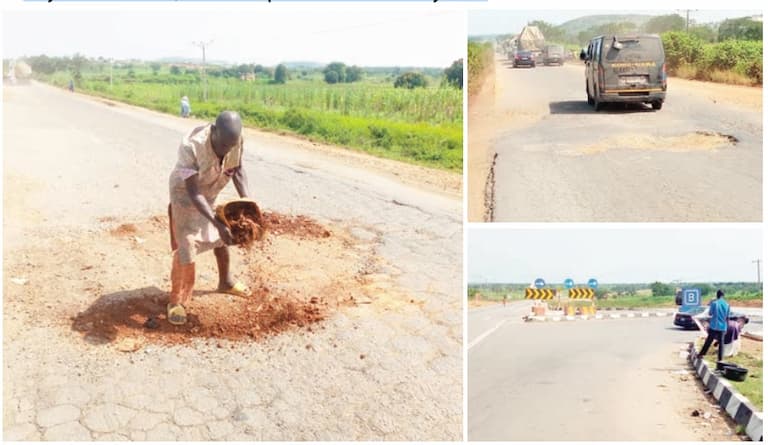

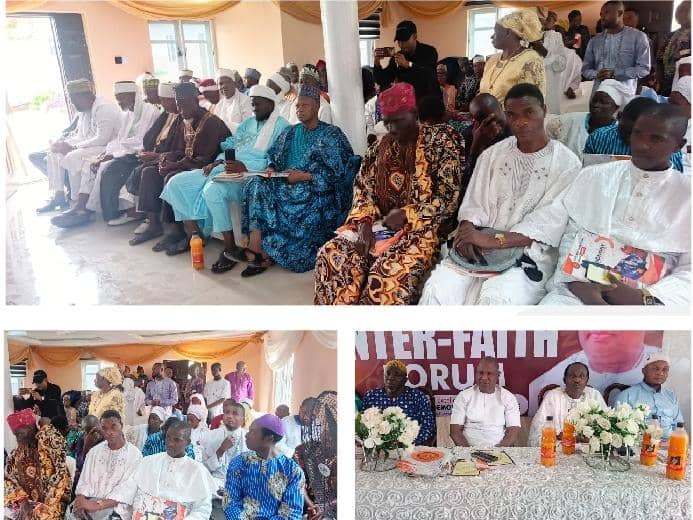
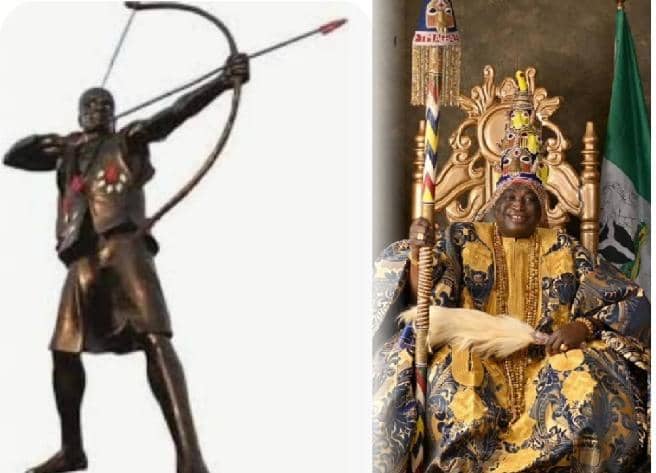
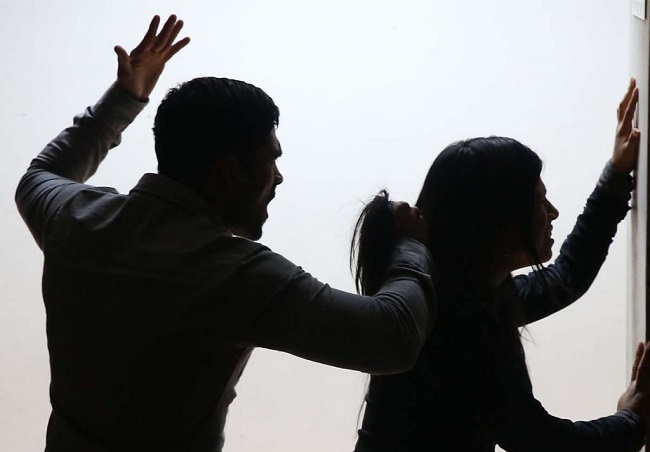


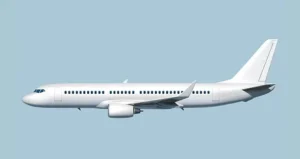

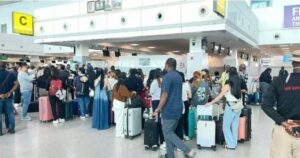

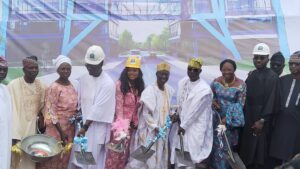
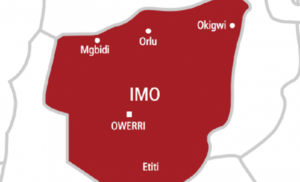

Post Comment